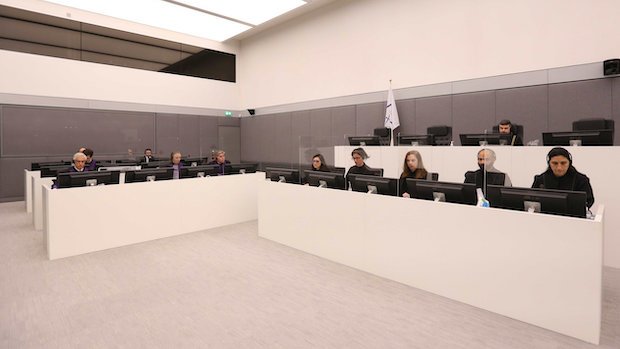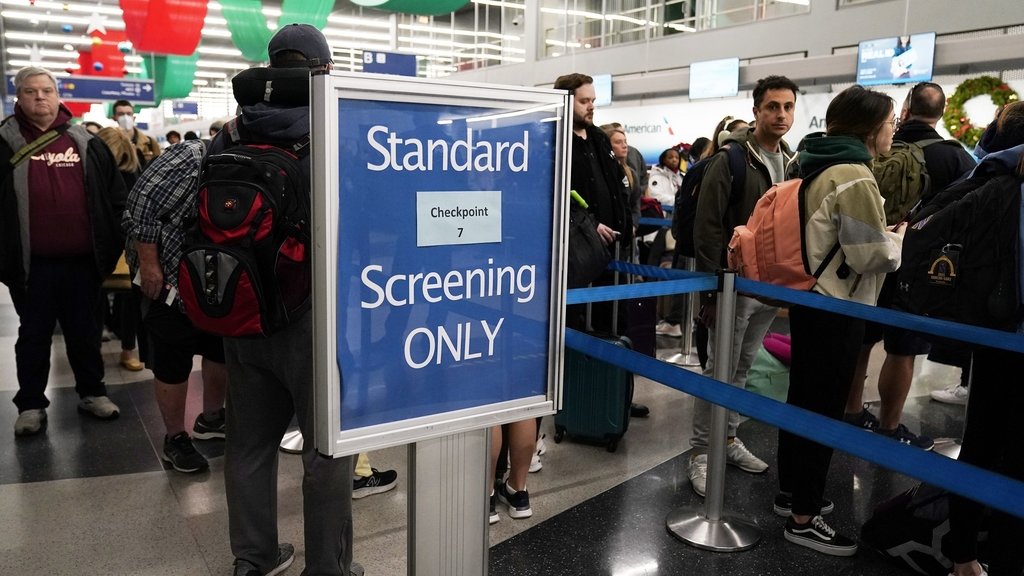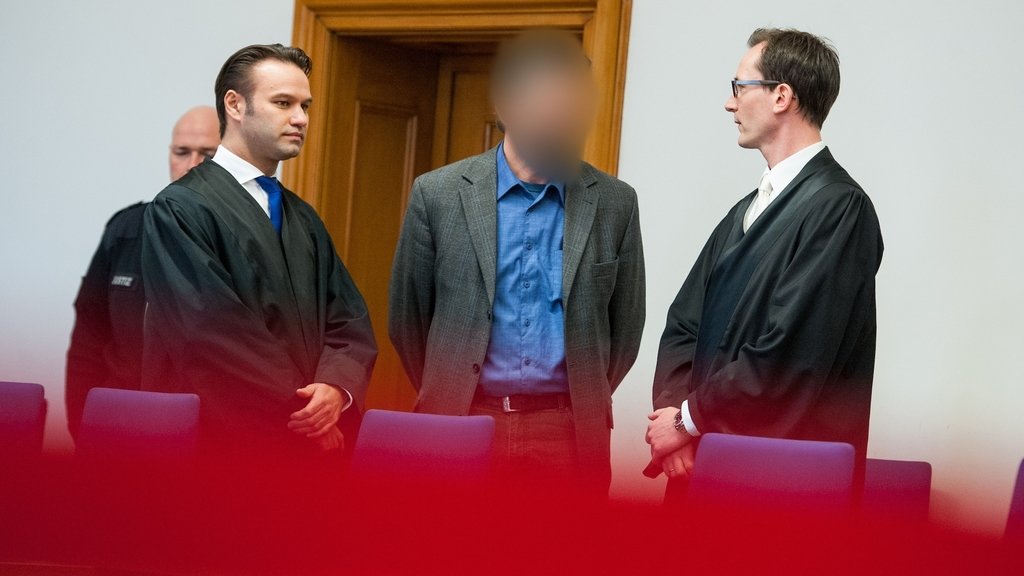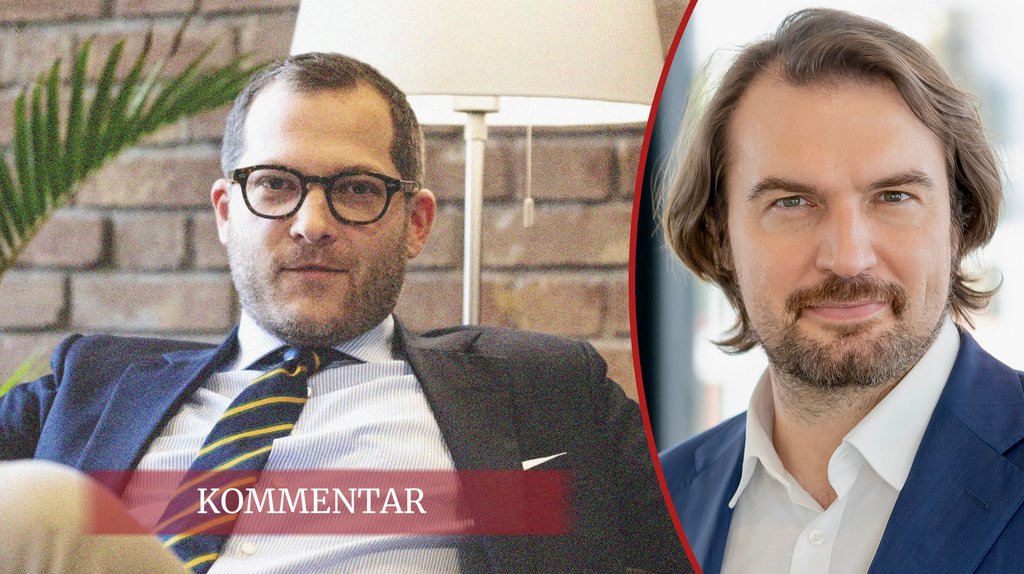More and more voices are demanding a special tribunal on Russia’s war in Ukraine. Although Russia has veto power in the United Nations Security Council, there are other possibilities for establishing a special tribunal, Franziska Rinke explains.
You find the German version of this contribution, deutsche Version hier.
It is still unclear how long the war in Ukraine will last and what would be the end game. What is clear is that by invading Ukraine on February 24, 2022, Russia has violated the ban on the use of force recognized by international law. Starting a war of aggression is the worst crime – the primordial sin, so to speak, that opens the door to all subsequent war crimes. What is the possibility of holding those who commit the crime of aggression accountable? We talk about persons in the highest military and political leadership.
The role of the International Criminal Court (ICC), which was established in July 2002, is to try individuals and hold them accountable for the most serious crimes. The ICC is responsible for prosecuting genocide, war crimes, crimes against humanity and the crime of aggression.
The international treaty, the so-called Rome Statute of 1998 (Rome Statute), the treaty that created the ICC, mentions the crime of aggression. It was not until 19 years later that the ICC's jurisdiction to prosecute was activated. But the hurdles to starting any proceedings are extraordinarily high – and as a permanent member of the United Nations (UN) Security Council, Russia has veto power on several areas.
ICC jurisdictional gap
There are two ways by which the jurisdiction of the ICC can be exercised over the crime of aggression. First, the Security Council could refer a situation to the Tribunal. Furthermore, a State Party can refer a situation to the ICC Prosecutor, and the Prosecutor may also initiate proceedings on a particular situation himself.
Neither Russia nor Ukraine are signatories to the Rome Statute. Ukraine has submitted to the jurisdiction of the ICC, but this does not apply to the crime of aggression. Here, due to a political compromise, no action can be taken against nationals of non-party states unless the Security Council gives green light to do so. However, this option is ruled out due to Russia's veto power.
For this reason, alternatives were considered early on to overcome the limitations of the ICC. Calls were made to set up a special tribunal, namely, to convene a criminal court for a specific situation and a limited period of time.
Various models are being considered that could work in the Ukraine case. A connection to the UN, the European Union (EU) or the Council of Europe is being discussed.
Treaty between Ukraine and the UN
The most prominent proposal is a treaty between Ukraine and the UN. This would in any case do justice to the fundamental interest of the international community. However, Russia's vote power in the Security Council is again problematic. The basis for the criminal tribunals for the former Yugoslavia (1993) and for Rwanda (1994) was in each case a Security Council resolution. Russia is likely to block to any such resolution.
As an alternative, it is therefore proposed that the treaty be finalized on the recommendation of the UN General Assembly. The alternative through the General Assembly seems promising. After all, in early March 2022, 141 member states voted in favor of a resolution condemning in the most severe terms Russia’s invasion of Ukraine. In October 2022, more member states condemned Russia's annexation of territories in eastern Ukraine when a resolution was tabled.
Unlike Security Council resolutions, General Assembly resolutions are not binding under international law. They therefore do not directly entail rights and obligations for the member states but are in principle only of a recommendatory nature.
One alternative is for the General Assembly to authorize the UN Secretary General to negotiate with Ukraine the contractual basis for the establishment of a special tribunal. This option can work if Kiev can enter into an international legal agreement with the UN. The Extraordinary Chambers in the Courts of Cambodia (2003) is a guiding model in this regard. Even more significant is the precedent of the Special Tribunal for Sierra Leone (2002). Although the Security Council acted in the run-up to the corresponding treaty, it did so explicitly in the form of a recommendation rather than a binding decision.
The European solution
Other conceivable forums are the European Union (EU) and the Council of Europe. Ukraine is a member of the latter. This would require signing an international treaty between Ukraine and the EU or the Council of Europe.
The political will also seems to exist at the European level. Both the European Parliament and the Parliamentary Assembly of the Council of Europe called for the creation of a special tribunal through a resolution just a few months after the start of the invasion. Only recently, the Committee of Ministers of the Council of Europe made a similar proposal. The meeting of G7 justice ministers in November 2022 also discussed, among other things, setting up a special tribunal for the Ukraine war. "We are open to discussing this," said EU Justice Commissioner Didier Reynders.
A solution via the EU or the Council of Europe would also seem practical for another reason. Many EU member states have already ratified and implemented the extension of the Rome Statute with regard to the crime of aggression including Germany, Belgium, Spain and Poland.
Kosovo Special Chambers as a role model
The Kosovo Special Chambers established in The Hague in 2016 could serve as a model. The Kosovo Specialist Chambers and Specialist Prosecutor's Office is a court staffed by international judges that rules on Kosovo law and adjudicates war crimes committed during the Kosovo war. Therefore, it is not an international court. The legal basis is the Kosovar constitution, which has been amended.
Dutch members of the lower house of parliament voted by a majority to allow a possible special tribunal to be based in The Hague. The Baltic states of Estonia, Latvia and Lithuania have also called on the EU to establish a special tribunal to hold Russia accountable.
In the meantime, a "Core Group" consisting of eight countries has been formed at the headquarters of the UN in New York to drive the initiative forward. In addition to Ukraine and the Baltic states, the group includes Liechtenstein, the Netherlands, Sweden, and the Czech Republic.
A clear commitment by the German government is missing
It is evident that has been much discussion and momentum at the political level in various international and regional organizations. However, a clear commitment and political will by the German government on the issue is missing. In the motion proposed on 9 November 2022, the CDU/CSU parliamentary group urged the German government on setting up a special tribunal at the European level and beyond in the interest of enforcing international law and justice in favor of Ukraine.
Particularly in view of the historical past, German governments since 1998 have strongly advocated that the crime of aggression can also be punished internationally. With Russia's war of aggression, Germany should no longer shirk its responsibility here.
ICC Statute should treat the crime of aggression in the same way as other international crimes
In the long term, however, the prosecution gap can only be convincingly closed by treating the crime of aggression in the ICC Statute in the same manner as the other three international crimes, by extending jurisdiction to non-member states. The creation of a special tribunal for Ukraine must not be a substitute for advancing this change at the international level.
The war against Ukraine, that is a blatant violation of international law, is costing countless innocent lives. It is not only an attack on Ukraine, but also an attack on the international community as a whole including international principles of peace and security.
A special tribunal has been regarded as a stopgap solution. In this specific case, however, it is imperative to stop the erosion of international law and international norms and principles that are an integral part of the global legal system. At the same time, such a special tribunal for the crime of aggression should point the way to future prosecution – and better yet, prevention – of wars of aggression by the ICC on an improved legal basis.
Dr. Franziska Rinke is policy advisor for rule of law and international law at the Konrad Adenauer Stiftung e.V.
War of aggression against Ukraine: A special tribunal for the crime of aggression . In: Legal Tribune Online, 12.12.2022 , https://www.lto.de/persistent/a_id/50426/ (abgerufen am: 19.04.2024 )
Infos zum Zitiervorschlag






